The views expressed in our content reflect individual perspectives and do not represent the official views of the Baha'i Faith.
My sisters and I come from a lineage of people who had a strong focus and passion for race unity and justice.
Our maternal grandparents, a black man and white woman, got married during a time where interracial marriage remained illegal in a number of states. Our mom modeled how to recognize class and race implications in everyday life. We witnessed first hand the disparity between the socioeconomically disadvantaged black and brown neighborhood we lived in, compared to the materially wealthy white neighborhood where we went to school.
For these reasons, it came as no surprise to me when my youngest sister, Eemanna Rivers, told me she was majoring in Peace, Justice, and Conflict studies. In addition to the values that characterized our upbringing, she’s always shown a natural affinity for creating peace. The Baha’i teachings say that we all have different capacities:
Difference of capacity in human individuals is fundamental. It is impossible for all to be alike, all to be equal, all to be wise. – Abdu’l-Baha, The Promulgation of Universal Peace, p. 217.
Even though none of us can know the exact capacity we have to develop certain virtues, I suspect Eemanna’s capacity to alleviate the suffering of others is especially high. When we were little, my other sister and I would create highly dramatic hardship for our Barbie dolls to navigate. At one point, in our imaginary world, I remember a baby was falling out of a window and Eemanna’s doll suddenly had the ability to fly and catch the Barbie baby before it hit the ground. Even when seemingly impossible, Eemanna wanted to resolve conflict and help others.
Fast forwarding a few years: her major at DePaul University, a Catholic University in Chicago, provides her a space to actualize this potential by engaging in rich conversation around issues in our real world and thinking about how to address them. She describes the program as being heavily focused on social justice, service, and the responsibility to give back—values similar to those that are central to the Baha’i teachings.
Recently, Eemanna and I had a conversation about all this. I asked her: “Do you think being a Baha’i given you a unique perspective in your program? If so, how?”
Right now, she said, I am studying peace justice and conflict studies at DePaul University. DePaul is a Catholic University, so a lot of the conversations that we have are about values (similar to Jesuit values) that are very focused on social justice, service, and a lot of things that align with the Baha’i writings. The responsibility to give back and a questioning of what you can do for your community is something that comes up a lot in class. Being a seeker of truth and embracing cultures around the world—so talking about global perspectives and perspectives from people of different experiences—is another huge factor in our conversations.
So, it feels really natural to tie in wanting a profession and having an education that is based around seeking justice. Going to class I encounter the same themes I have discussed in Baha’i seminars (Institute for Studies in Global Prosperity) where we talk about the ills of society, the things humanity is suffering from, and the root causes of things like war, poverty, and oppression.
I think what being a Baha’i does for me is that it gives me a perspective that things are going to get better. What I have in common with a lot of people studying the same thing as me is that I am acknowledging the things that are wrong with the world and what needs changing, but the main difference is that I believe there is still hope. As sad as that is, a lot of people don’t really believe that things are going to change.
Q: How do you feel like you give to your community or help to build your community?
A: Right now a lot of my community is based in being in an undergraduate program and being at a four-year institution—so extracurricular activities are where I find a lot of my most immediate community.
I have been attending African Student Association meetings. I also have been working as a student leader for Sankofa, which is black leadership initiative that puts on retreats. The retreats are based on a lot of spiritual principles and African traditional ways of thinking about community: things being interconnected and recognizing that being a part of a community is a part of who a person is. A big part of what we do is try to form stronger identity by understanding where we come from and our history. I have been working to put on these different retreats that happen for black students at DePaul. That’s one of the biggest ways I feel like I am directly trying to create community.
Q: How do you think this aligns with the Baha’i definition of community building?
A: I think that it does fit with the Baha’i efforts, because it is strengthening communities that have been weakened by things Baha’is oppose like injustice and oppression. If we are going to try and treat the ills of our society we have to engage with people who are being affected by those ills. I think a lot of times we are under the perception that going deeper into the identities of race and gender will somehow divide us more, but I think that we find a lot of answers through engaging with communities when they are comfortable and through consultation. I learn from people who have different experiences than me, and in those spaces I can talk to people about what we need to heal. A big part is thinking about healing.
Q: Do you feel like being a Baha’i—or the Baha’i writings—have guided you to this place of seeking justice and healing?
A: I am always approaching the Baha’i Faith as someone investigating it for the first time. So when I go to my classroom or these community spaces I have a lot of the Baha’i writings to guide me, but I am also using what I learn in school to help me better understand the Baha’i Faith.
Q: The harmony of science and religion seems to be a big principle that you’ve embraced. Also, the independent investigation of the truth is another Baha’i principle you seem really focused on achieving. As Baha’is we are told to always be seeking truth and to not just simply assume that someone else’s interpretation is fact.
A: Yes—and you can find truth in many different sources. For example, a lot of my classes talk about indigenous ways of healing, like peace circles and the ideas around peace circles. It is similar to the Baha’i principle of consultation.
Q: Baha’i community building efforts are largely focused on certain core activities—have you participated in helping support any of these activities?
A: I kind of want to have a junior youth group in Chicago.
Q: Can you speak more to why you want a junior youth group?
A: As plain as it sounds, I think it is because when I was a junior youth I was in one, and it had a huge impact on my expectations around friendship. It pushed me to think beyond middle-school cliques and encouraged me to find diverse friendships. The person doesn’t have to have all the same interests or the same background for me to have a meaningful friendship with them. It taught me to humanize people who are very different from me and strive for deep levels of connection.
If I can create a space for others to do that—it only brings positivity. It pushed me to more of a critical thinker and connected with my community.
Q: Sounds like it was a lot of understanding about service gained—do you think it might have possibly even contributed to the way you contribute to community now?
A: Yes, I think it definitely helped with that.


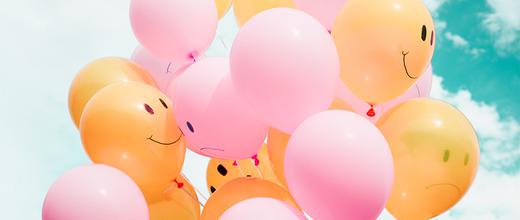


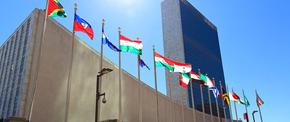


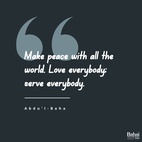

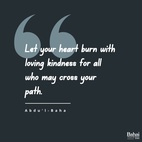

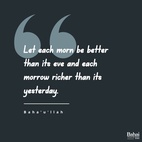

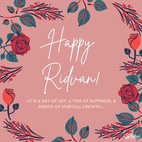
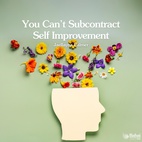

Comments
Sign in or create an account
Continue with Facebookor